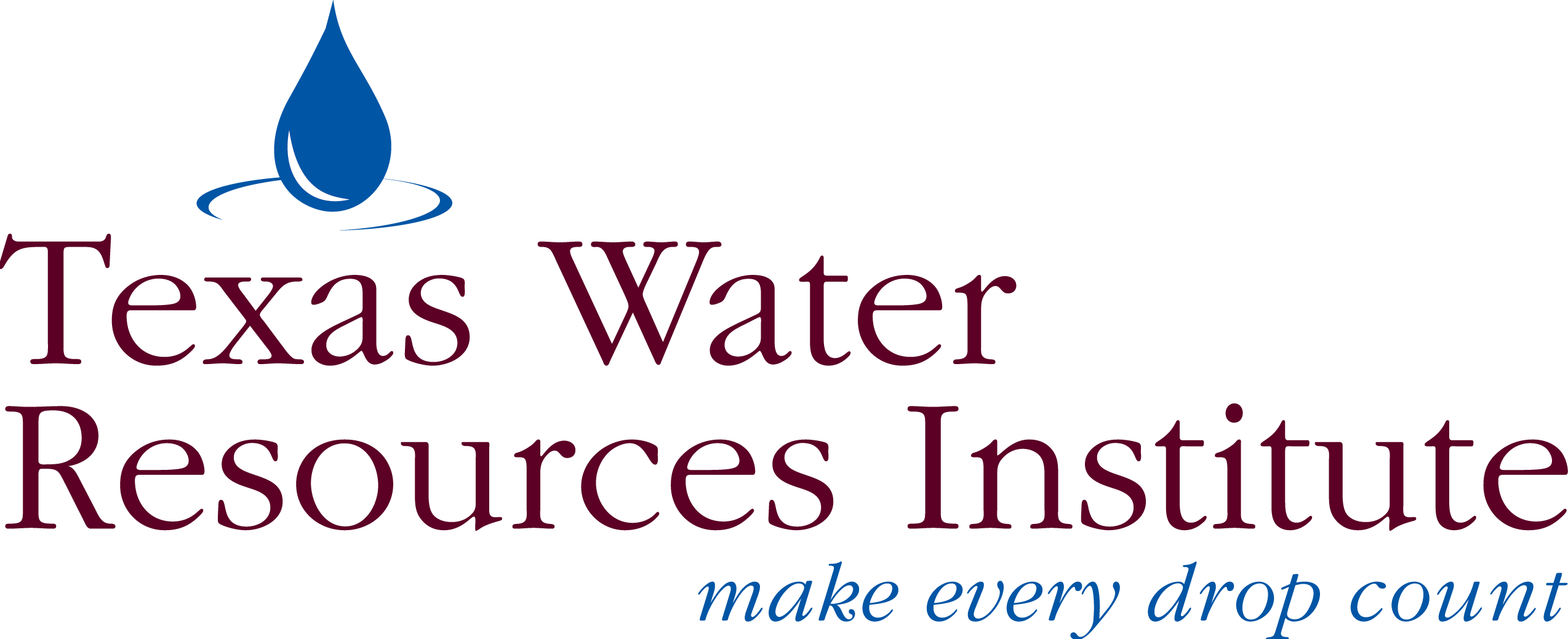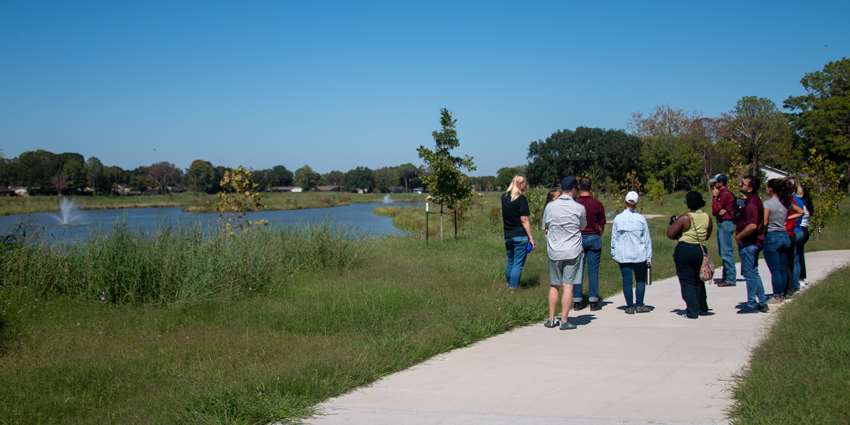Article originally written by Cameron Castilaw
Texas Water Resources Institute held its semi-annual Texas Watershed Coordinator Roundtable in Houston Oct. 9-10. The two-day tour and roundtable is part of the Watershed Planning Short Course program and brings together watershed coordinators and other water resource professionals from across the state.
This roundtable’s focus was the Houston area. The largest city in Texas, Houston serves as a major port city for the state due to its proximity to the coast and has been hit by major hurricanes in recent decades. The 2-day event included learning about the many different types of water-related issues impacting the Houston area, including hurricane recovery, infrastructure problems and stormwater runoff.
The tour portion of the roundtable had attendees visiting Exploration Green, a 200-acre former golf course that has been turned into a large-scale stormwater detention area and nature reserve. Located in the Clear Lake area, the land has multiple large stormwater ponds designed to hold water for short periods of time, and then slowly release it into Horsepen Bayou to avoid flooding.

“During Hurricane Harvey, they estimate that that project saved 150 homes from flooding in the immediate vicinity,” TWRI Associate Director, Lucas Gregory said. “It’s also a really nice green space in the middle of a lot of not-so-green space around there.”
Being able to get out and see how areas around Texas are working to address local needs, along with hearing from those involved is one of the biggest pros of the roundtable, Gregory explains.
“To hear about some of the challenges and see the issues that these types of projects face” is very helpful to water professionals, he said.
Day two of the program was a roundtable at the Houston Galveston Area Council offices.
“We talked about watershed projects and activities in the Houston area,” Gregory said. “We also talked about some newer tools out there for watershed planners for best management practice (BMP) database options and looking at BMP efficiencies.”
Additionally, five watershed coordinators from the area sat for a panel to discuss the work they are doing in their respective watersheds. Discussions like these can help foster collaboration and give new ideas to others facing similar challenges in their own watersheds.
“It’s always interesting to hear people’s take on issues and see what kind of challenges they face because everybody faces similar types of challenges, but they may have a viable solution to something that you hadn’t thought of in your watershed.”
Another large benefit from the roundtable, Gregory said, is the chance to get together and network with other watershed coordinators and water professionals.
“Obviously every watershed is different, but there are similar things that everybody has to deal with,” Gregory said. “That’s why these started in the first place, everybody’s working on watersheds, and this provides the opportunity to know other people working in watersheds and have somebody to talk through an issue with.”



